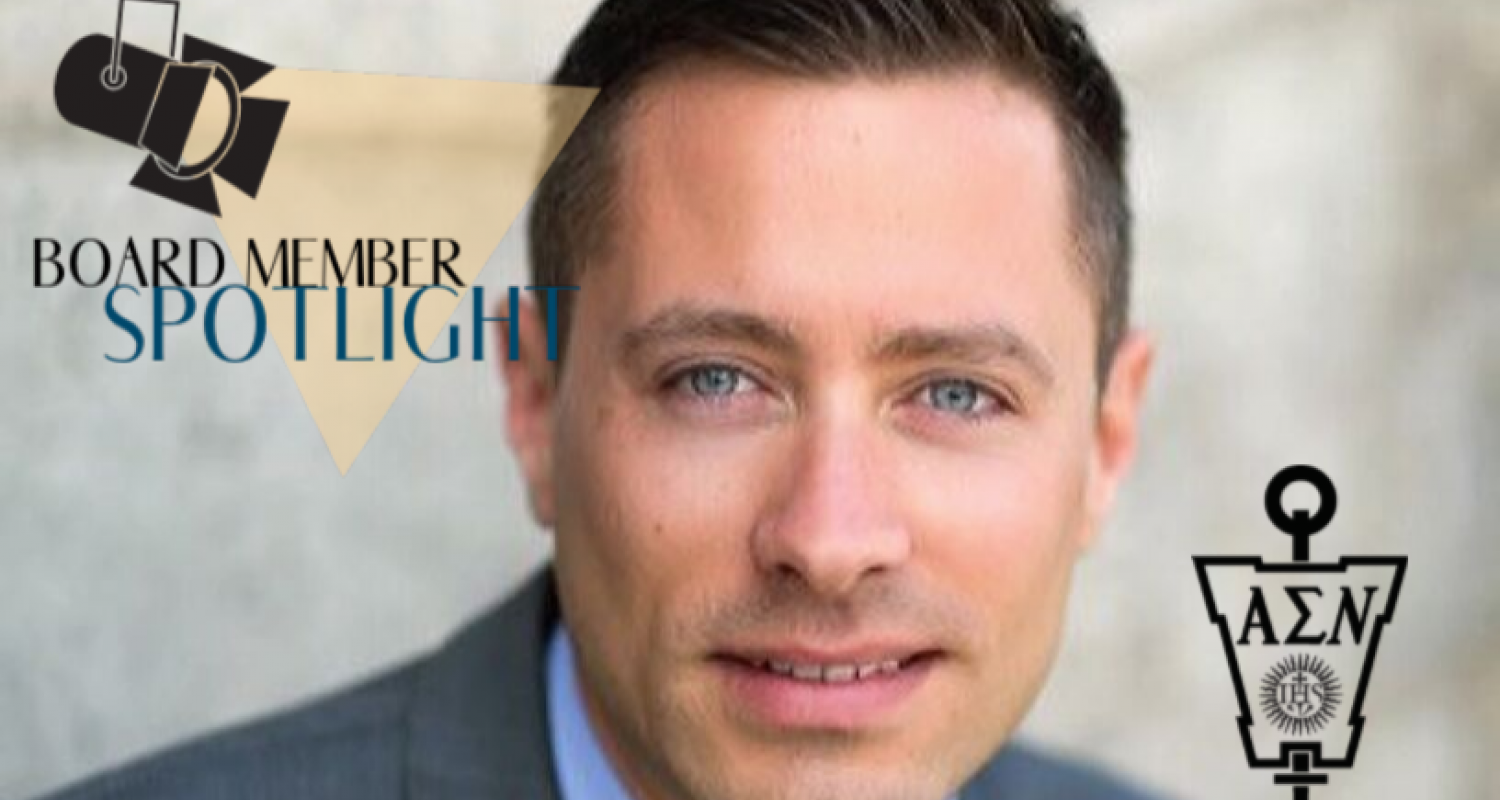Board Member Spotlight | Michael Jenkins, PhD (Univ of Scranton `05)

Ignatian principles are appealing for their practicability to everyday life. They offer a scope for seeing extraordinary goodness (i.e. God!) in the ordinary and allowing people a way of having that goodness flow through them out into the world. In today’s self-centered culture, with its myriad substitutes for substance and fulfillment, these principles and values are a welcomed, relatable, and intelligible way of ensuring a more spiritual existence.
I’m fortunate to have held positions as the University of Scranton’s AΣN chapter president, Scranton alumni club president, and now as an ASN board member as well as University faculty member. These positions give me space and encouragement for reflecting on the more significant calling in my life, a calling that we all share. That is, to care for each person we encounter as though they are an image of God’s goodness. In my teaching and researching issues of crime and criminal justice, that means the knucklehead student who’s acting out in class, the repeat offender who can’t seem to get ahead, or an obstinate police officer unwilling to learn how they could better serve their community.
Luckily, working at the University of Scranton and serving in positions with AΣN remind and teach me to ask myself, “How does my belief that people are reflections of God’s goodness change my response to them?” And, “How do I allow God to use me to reflect God’s goodness to others?”
Those are enormous questions and suggest a certain level of audacity. But that really is how big and audacious the call of God is on our lives. Indeed, a starting point of anticipating God in all things, as is the Ignatian way, leads to the principle of acting for the “greater glory of God.” Looking for the good in all people and situations necessarily leads to doing good.
AΣN members are chosen not only for their intellectual abilities, but also for their track record of contributing to the betterment of the world around them. Members will undoubtedly be confronted with numerous opportunities to put their talents to work in service of others. And the best choice will not always be obvious. However, when we sincerely desire to discern how our talents could best be used to serve others, we may find ourselves called to unimaginable feats.
The mantra I use to reflect on my own career choices is “Do good well.” This mantra has carried me on a path I could have never imagined, despite my best attempts to plan. It has taken me to multiple positions in two universities; it’s brought me to live in Europe and the Middle East, to study and educate security personnel, and to cities across the United States. I can’t say what that path would have looked like had I not been inspired by the big ideals of seeing and reflecting God, but I’m pretty sure it would look a lot different, and it would definitely not be as fulfilling.
